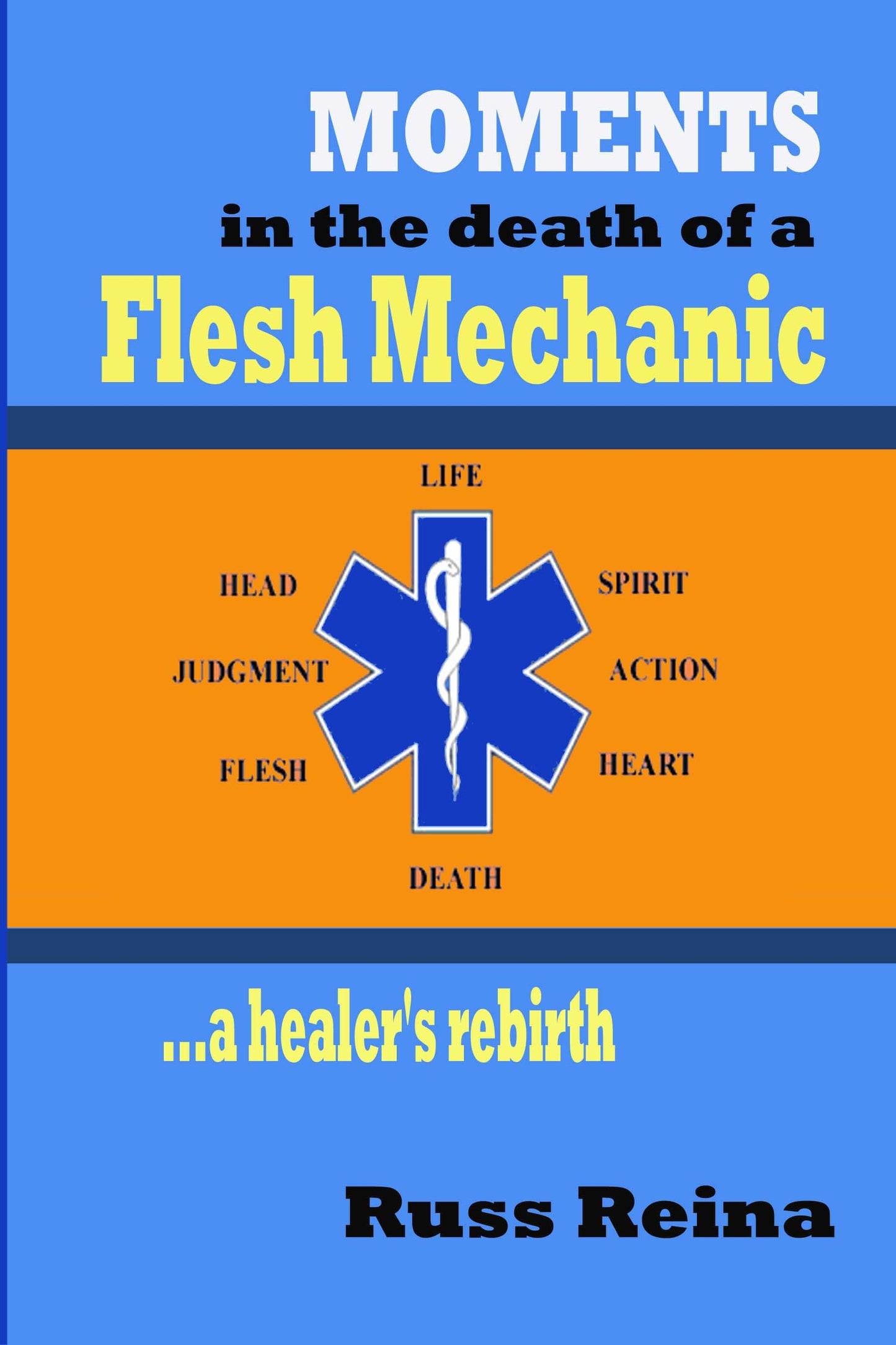Moments in the Death of a Flesh Mechanic...a healer's rebirth.
Moments in the Death of a Flesh Mechanic...a healer's rebirth.
Couldn't load pickup availability
Russ Reina was in one of the first pilot programs of the newborn Paramedic system in the mid-1970's. Starting out as an Emergency Medical Technician (EMT) in a volunteer ambulance service in Queens, N.Y. he went on to have a 12-year career in Emergency Medical Services (EMS) at a time when the average burnout occurred in 3 years!
As one of the first State-Certified Mobile Intensive Care Unit Paramedics (MICP), in Volusia County, FL, he went on to work throughout Santa Barbara County, CA until 1986. The profession, in its infancy, was in a constant battle for survival.
This new way of delivering pre-hospital emergency care was under extensive pressure and scrutiny by medical professionals. Many resented a “bunch of kids” doing in the field what most physicians could not even do in the hospital -- save lives using newly-developed tools!
Additionally, private ambulance services were always battling with government agencies to get enough backing to allow the system to do what it was meant to do. The medics were caught in the middle: knowing the best resources available to provide consistent and effective intervention were often withheld because of a lack of support by not only the agencies, but by the people at large who didn't understand these sweeping changes.
Russ fought for improvements in the system and to help ambulance "hacks" transform themselves into seasoned and valued professionals. The end results of his efforts was the formation of the California Ambulance Association which was the first AFL-CIO Union affiliated organization representing medical professionals in EMS.
Ultimately, Russ didn't burn out from the work. He said, "I burned out on the politics!"
But, underneath the nuts and bolts of the profession was a very human struggle. No other development in modern-day medicine exemplified the transition of the "Heads, Hands, and Heart" orientation of practitioners into a culture dominated by "Flesh Mechanics”.
Russ found himself becoming more and more proficient in the "delivery" of emergency care and less and less responsive to the human beings he was treating. As he became more distant from his patients, he also realized he was becoming distant from himself. The layers of armor he had wrapped around him for insulation from the pain of his patients and the agony of the human condition, were strangling him. He was losing his soul!
When he looked to other creators in topics of EMS, he found lots of material focusing on the Flesh Mechanic aspect and almost nothing of what it means to be a human being in the back of an ambulance in a tug-of-war with death. He decided to fill the gap and offer medics an alternative way to think about themselves in relation to their patients and profession.
Russ challenged himself to revisit key moments of his experience and articulate some of the conflicts, challenges, joys, horrors, wonder, despair, connection and humor he lived through. His goal was to write a book that would provide EMS workers an example of someone who was willing to explore what had been up until then taboo territory.
Beyond that, he realized society as a whole was being corralled into a similar holding pen as medical practitioners; guidance was to be defined by protocols and directives rather than seeking out and listening to the still, small voice within. In that way, Russ crafted his book to be useful for anyone seeking to better understand the human experience in critical moments.
Step into the back of Russ’ ambulance and secure your seat belt for a sometimes harrowing yet always illuminating ride into a world that few get to see. Allow Russ to bring you in to the heart of a healer as he examines the interplay between life and death, judgment and action, head and heart, and spirit and flesh .

